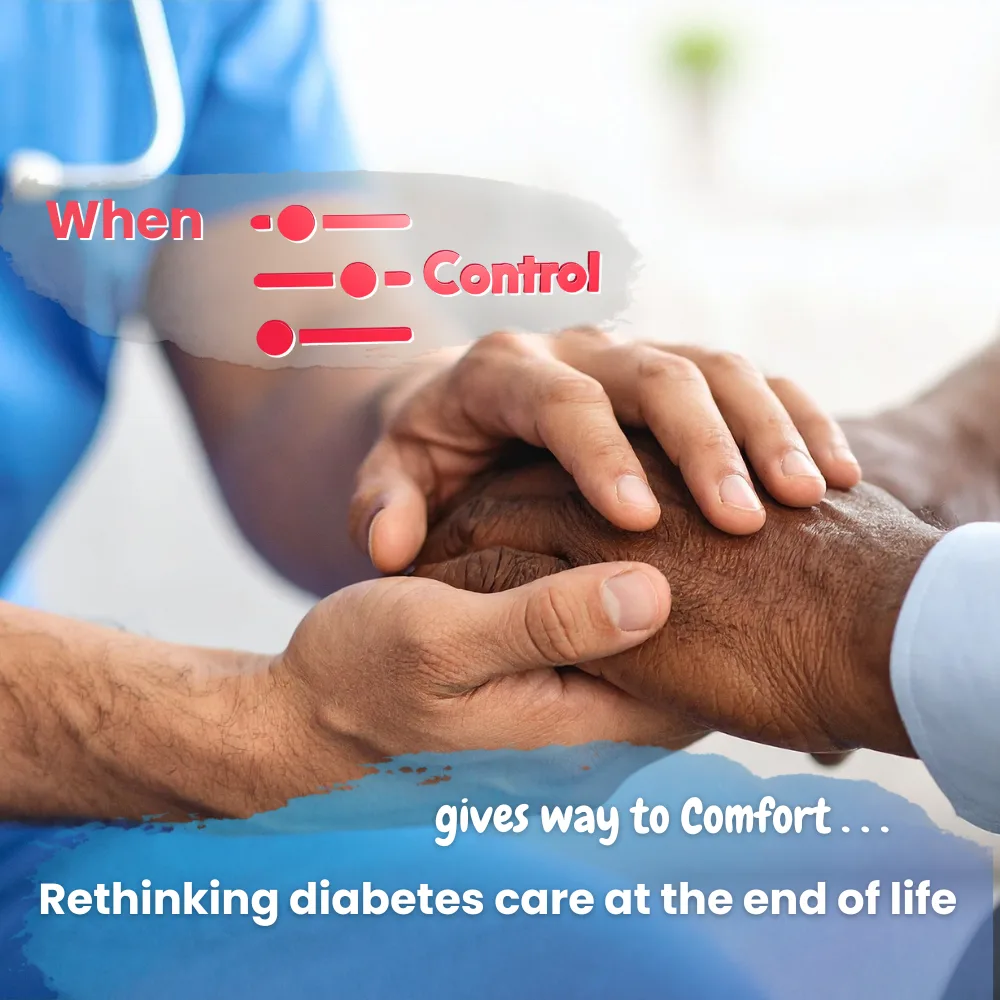
R92.00 incl VAT
For most of their lives, people with diabetes are guided toward measurable goals such achieving tight glycaemic targets, blood-pressure threshold, and lipid levels. Yet as life draws to a close, these priorities must evolve. Published data reveals that at the end of life, a “treat-to-target” mindset can unintentionally cause distress through unnecessary glucose monitoring, restrictive ‘diets’ and overtreatment.
Diabetes seldom causes death directly, rather, it complicates dying from cardiovascular, renal, hepatic or malignant disease. As prognosis shortens, the goal is no longer intensive management, but rather relief from the symptoms of hypo- and hyperglycaemia, guided by dialogue, comfort and dignity. This requires active un-learning of decades of risk-reduction habits and honest conversations with our clients and their families about changing priorities.
Studies have found that many healthcare professionals still relegate diabetes to the ‘background’ in palliative care, often due to limited guidance or confidence. Yet those who individualized care through adjusting monitoring, liberalizing food intake and prioritizing quality of life, described greater client comfort and calmer deaths.
Our live session will challenge you to expand mind beyond intensive management alone, to realise the immense value of presence and compassion, to recognize when “doing less” is doing best.


(Please note that subscribing here does NOT register you for any CDE Course)